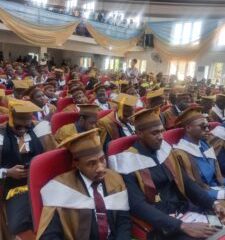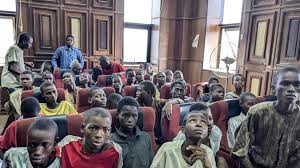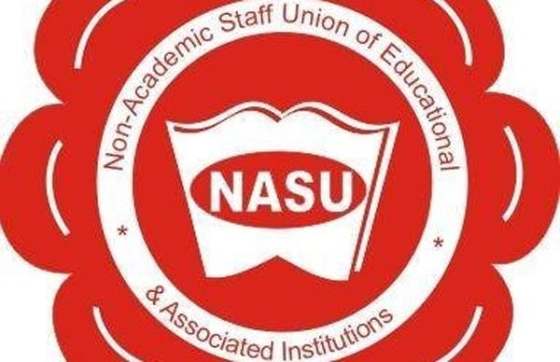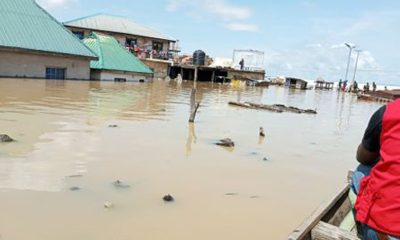COVER
The Curse of Strong Men, Weak Institutions
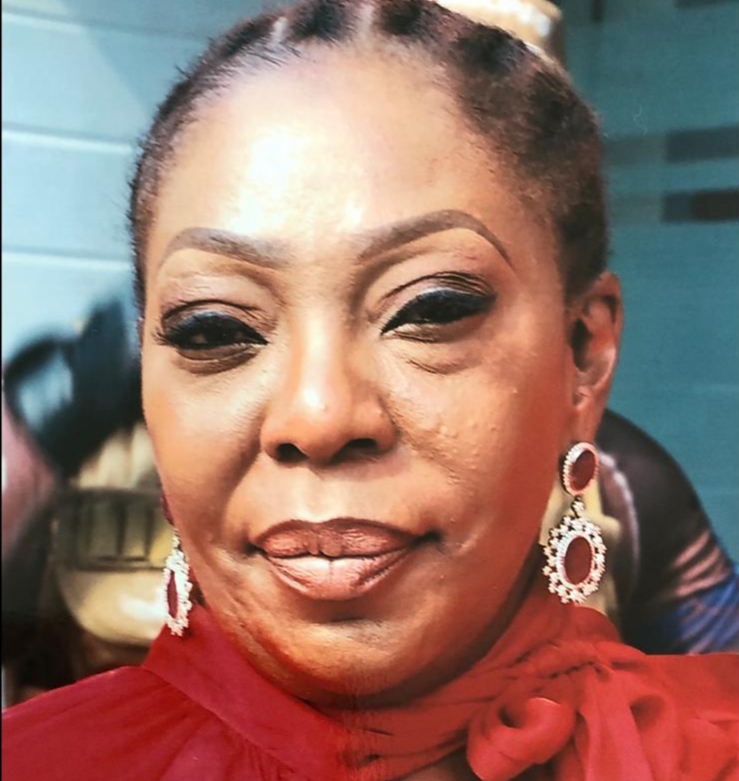
By Onikepo Braithwaite: The Advocate
Dr Olusola Saraki Memorial Lecture
I attended late Dr Abubakar Olusola Saraki’s 10th Year Anniversary Memorial Lecture in Abuja last Monday. The theme of the Lecture was “The Leadership and Followership Debate”; and the Guest Lecturer was Professor Patrick Lumumba, former Director of the Kenyan Anti-Corruption Commission; Director of the The Kenya School of Law.
He talked about our African leaders of old – Chief Obafemi Awolowo, SAN; Dr Nnamdi Azikiwe; the Sardauna of Sokoto, Sir Ahmadu Bello; President Kenneth Kaunda of Zambia and President Julius Nyerere of Tanzania. How the last two leaders, left office with the equivalent of only $4,000 & $8,000 in their personal accounts! A look at most African countries and their condition today, 60 years or more after independence, shows how badly most subsequent African leaders have done. Even South Africa which used to be the Europe of Africa, is now experiencing regular power cuts. Meanwhile, many of our African leaders have been quite successful at one thing – enriching themselves and their cohorts, while making the gap between the rich and the poor wider.A Bad Report: Weakened Institutions
Shining the light on our own country Nigeria particularly, it is obvious that most of the institutions that the British colonialists and our founding Fathers left behind, have been systematically eroded and destroyed by their successors in leadership. Chief Awolowo would be turning in his grave, if he could see what their Free Education Scheme of the 1950s has turned to today (I must also recognise Professor Stephen Awokoya as being part of the origin of the Scheme as well)! As imperfect as the 1999 Constitution of the Federal Republic of Nigeria (as amended)(the Constitution) is, its Section 18 provides for equal and adequate educational opportunities at all levels. However, successive leadership has destroyed our educational system with corruption, quota system, federal character etc. Additionally, while our supposedly free education is not entirely free, the quality has become rather inadequate and low. While Comrade Adams Oshiomhole was Governor of Edo State, it was common knowledge that he caught out a Primary School Teacher who could barely read! The Governor who was shocked, apparently asked the Teacher what she taught the children, and what she wrote on the blackboard if she couldn’t read! What kind of recruitment process was used, to the extent that an almost-illiterate was employed as a Teacher?
Most of our institutions have also been destroyed; we now have weak institutions and strong personalities. The output of our shaky institutions, therefore depends largely on the character and intellect (or lack of it) of the person-in-charge. If not that a country like USA has strong institutions, an unstable person like President Trump would have done irreparable damage to it.
For example, on January 27, 2017, President Trump signed an Executive Order prohibiting the entry of immigrants and non-immigrants for 90 days from certain countries from the date of the Order, citing protection of the American people from terrorist attacks by nationals of the banned countries as his reason. Though the Acting US Attorney-General at the time, Sally Yates was sacked by Trump as a result of her advice to the Justice Department not to implement the travel ban because it was unclear if the ban was legally defensible, a U.S. Federal Judge in Seattle issued a restraining order ordering a nationwide suspension of President Trump’s Executive Order, thereby reopening US borders to the seven countries mentioned in the Executive Order. Again, Trump tried every trick in the book to ensure that he got a second term, including inciting violence. Having failed to prove his spurious electoral malpractice allegations in any court of law because the Judiciary would not cooperate with his nonsense, Trump then tried to truncate the Congressional session headed by Vice President Pence to certify Joe Biden and Kamala Harris as the winners of the 2020 election. Some saw it as a failed coup attempt. Either way, Trump didn’t succeed, because America obviously has strong institutions; institutions that are stronger than any incumbent President. For one, the courts wouldn’t just find in favour of Trump, simply because he was the President. Can we confidently beat our chests, and attest to the fact that this is how it happens in Nigeria? I think not.
While the American Judiciary is obviously not perfect and they also have their bad eggs too, it is for the better part of it made up of fine, mostly qualified jurists. While a good number of our jurists may be top notch, can we say all of them are, when even the recruitment exercises into their positions are usually fraught with controversy?
Sometime between 2020 and 2021, during the recruitment exercise of Court of Appeal Justices, the former NBA President, Olumide Akpata revealed that some of the shortlisted candidates for the job were not familiar with the basic legal concept of ‘Lis Pendens’, and they were told that they would learn on the job! Is the Court of Appeal a Law Faculty or the Law School? Is it then shocking that there are conflicting judgements delivered at that level, when not all those being recruited to the Court even know the basics? How do you then apply what you do not know? Those who are placed in institutions which they are not qualified to be in, can only do one thing – weaken, and maybe even destroy the institution.
Presently, there is another exercise to fill up vacancies at the Court of Appeal. The President of the Court of Appeal invited prospective candidates to participate in a Computer Based Test last Friday, with a request that they bring their laptops or IPads to sit the test. We understand that such a computer based test, was successfully used to recruit Federal High Court Judges. Due to a protest by some people at a prior meeting that some candidates are not computer literate, the test was cancelled. Pray tell, what are people who are not computer literate in 2022, in the age of virtual hearings, electronic law, intellectual property etc; who are unable to carry out research by themselves at the drop of a hat on the internet, doing in such a crucial position as Court of Appeal Justice, when by now, we should be moving away from the outdated manual longhand court system to the computerised? If prospective Court of Appeal Justices do not understand basic legal concepts, nor are they computer literate, nor can they even access LPELR etc for themselves to look up the subject-matter or authorities on matters which are presently before them, or peruse law journals on the internet, then how properly equipped are they, to be in that role?
This is just another example of not putting our brightest and our best forward, whether it be in our institutions, judicial and executive offices, educational sector or even elective positions.
Politicians/Ministers etc were very much present at the Memorial Lecture. I didn’t know whether to laugh or cry, when someone pointed out one of the Government bigwigs to me, and said the person’s nickname in University was the translation of dullard in their language! While I cannot speak authoritatively for other African countries, I think I can safely say that our founding Fathers would be rather disappointed with what Nigeria and her institutions have become today.
“Those of us placed in a position of leadership must be prepared to grasp the nettle if we unite in doing so, and if, in addition, we set a worthy example and a Marat on pace in probity, unselfishness and self-sacrifice, the people will follow, all too readily, in our footsteps.” – Obafemi Awolowo. Unfortunately, our successive leaders have done quite the opposite instead, and set an unworthy example of corruption, kleptomania, greed, selfishness, self-centredness, ineptitude and partiality, amongst many other evils; and sadly, this disgracefully bad example, has been followed by many. Both the leadership and the followership would require something akin to positive brainwashing, to get back on the right track.
Criminal Defamation
As is typical of Nigeria, moving from one drama to another, the other day, I read that a young man, Aminu Adamu, who allegedly defamed/libelled the First Lady of Nigeria, had been arrested. I wrote about Libel and Slander a few weeks ago, and so my interest was piqued.
As I said on this page on November 8, 2022, defamation of character or an allegation of it is a Tort. In Oruwari v Osler 2013 5 N.W.L.R. Part 1348 Page 535 at 556 per Chukwuma-Eneh JSC, the Supreme court held thus: “Defamation as a tort, whether as libel or slander, has been judicially defined to encompass imputation which tends to lower a person defamed in the estimation of right thinking members of society generally, and thus, expose the person so disparaged (the Plaintiff) to hatred, opprobrium, odium, contempt or ridicule”.
However, Section 391 of the Penal Code (applicable in Northern Nigeria and Abuja) and Section 375 of the Criminal Code (applicable in Southern Nigeria) also provide for the offence of defamation of character, which is punishable by fine or imprisonment or both. Aminu Adamu was charged under Section 391 of the Penal Code.
There doesn’t seem to be much of a difference between the definitions of civil and criminal defamation of character; and, while it is trite law that where a matter has civil and criminal aspects, the criminal matter should be handled first, in the case of civil and criminal defamation, it is unclear as to the elements which qualify a defamatory utterance to be civil or criminal. It has been argued by some that where the matter is between individuals or companies, it should be civil matter; but, when it involves an individual and the State, then it should be criminal defamation. If this is so, then Aminu Adamu should not have been charged under Section 391 of the Penal Code, but it should have been a civil matter, seeing as the First Lady is not the State.
However, in a country where there are not too many hard and fast rules, it seems that it may be up to the Complainant to decide which one he/she wants to pursue, that is, civil or criminal. So, for example, if I was defamed by a billionaire, my best line of action would be to pursue a civil case to try to recover juicy damages (monetary), while if it is someone who lacks the financial muscle to compensate me, I would go for criminal defamation, so that he/she at least suffers in prison if convicted.
But, looking at Aminu Adamu’s case, assuming without conceding that it qualified as criminal defamation, should he not have been charged under Section 15(1)(a) & (b) of the Cybercrime Act 2015 (CCA) instead of Section 391 of the Penal Code, since his offensive publication about the First Lady was by way of Twitter, that is, electronic communication, which is more specifically covered by the CCA? If found guilty under the CCA, the Defendant would be liable upon conviction to pay a fine of not less than N2 million, or be imprisoned for a period of not less than a year, or both. Thankfully, the charge against 24 year old Aminu Adamu has been withdrawn.
COVER
FG to Fund Key Science and Technology Projects through PPP

By Tony Obiechina, Abuja Federal Government says it will consider using private sector funds through Public Private Partnerships (PPPs) as a funding option for certain key projects in the Ministry of Innovation, Science and Technology.This was disclosed when the Director General of the Infrastructure Concession Regulatory Commission (ICRC), Dr Jobson Oseodion Ewalefoh, paid a courtesy visit to the Minister of Innovation, Science and Technology, Mr Uche Nnaji.
The meeting which was at the instance of the ICRC DG, sought partnership between the two government bodies to harness PPPs to advance critical projects that can boost the economic and technological growth of the nation. Speaking during the meeting, Dr Ewalefoh said that science and technology, if properly deployed, can serve as a key driver of the economic growth and progress of Nigeria.“Many countries around the world have used Science and Technology to drive the economic growth and prosperity of their country and people.“We are here to brainstorm with you and find ways by which we can deepen the usage of science and technology for the advancement of our country.“Over the last two decades, countries and businesses have harnessed technology and innovation for upscaling their economy and improve the efficiency in their service delivery.“That is where we want our country to go, and we believe that is the vision you are championing under the renewed hope agenda of President Bola Ahmed Tinubu.“It is, therefore, my aspiration that your ministry will partner with the ICRC to see areas where we can champion private sector funding through Public Private Partnership to develop some of the projects specific to the ministry,” he said.The DG informed the Minister that there was already a collaboration with an agency under its purview but stressed that there were other key areas where PPP could be harnessed to deliver laudable projects in the Ministry.He added that the commission has streamlined its processes to accelerate PPP project delivery and deliver important services to the Nigerian people, pointing out that some key private sector operators have already verbalised their desire to work with the Ministry in a PPP arrangement.In his remarks, the Minister expressed his excitement at the appointment of Dr Ewalefoh as the DG of ICRC, saying that the DG’s wealth of experience will revolutionise the PPP sphere in Nigeria, adding that, indeed, a square peg has been placed in a square hole.The Minister emphasised that the Ministry served as a key enabler of economic growth and has had the support of President Bola Ahmed Tinubu demonstrated through major approvals granted the Ministry.He said that the President had given approval for methanol production, saying that although the implementation process were still being finalised, foreign direct investments for the project has reached over $1.5 billion.“We want to go into beneficiation of raw materials and we have the presidential executive order number 5 to back it, such that we don’t have to export our raw materials, but process it to a level before exporting. We are looking at doing green hydrogen, too,” he said.He stressed that Nigeria could make a lot more from cassava export than it was currently making if the raw cassava was processed before export.“We believe that with ICRC, we will partner in doing things right and enabling us to forge a better outlook for most of these projects.“In methanol, we are going to involve ICRC more closely to see the way forward and how it can benefit the country better.“I am happy that you are here; coming here shows that you know what you are doing. You are taking services to those that need it,” he said.COVER
Suspected Herdsmen Attack Benue Community, Kill 15

From Attah Ede, Makurdi
Gunmen suspected to be Fulani armed militia, on Wednesday night, reportedly invaded Anyiin town in the Logo Local Government Area of Benue State.
Multiple reports indicated that no fewer than 15 persons were killed in the attack, leaving several others with varying degrees of injuries while yet to be ascertained number were missing.
The attack, which was said to have been launched at about 6:30pm by the well-armed Fulani herders, caught the community unawares as the invaders reportedly emerged from different locations shooting at everyone in sight.
The attackers, who were said to be numbering about 200, were reported to be wielding AK-47 rifles and other sophisticated weapons, operated for about three hours.
An eyewitness and community leader in Anyiin town, Chief Joseph Anawah, said the armed herders overwhelmed security operatives stationed in the town because of their large numbers.
He said it was a coordinated operation, stating that the alleged Fulani terrorists took residents of the town unawares, surrounded the town and shot sporadically.
Anawah said some of the villagers who ran for their dear lives were caught in an ambush laid by the invaders.
He listed some of the victims to include: Mr Orihundu Ati, a retired primary school supervisor and the son of a kindred head.
Also killed was a son to a Chief of Staff to a former Logo council chairman, Tordoo Suswam and a relation of a late District head of Ukemberagya, Zaki John Chembe.
Anawah listed Ukemberagya, Tswarev, Mbawar, Gov, Mbainange, and Tombo among neighbouring communities earlier displaced by the invaders and whose residents were taking refuge in Anyiin before the latest attack.
The community leaders appealed to the federal government and the Benue state government to revive an abandoned Mobile Police barracks project along Akwana-Anyiin-Wukari road to secure the lives and property in the communities.
They lamented that farmers in the affected communities could not harvest their crops because they were being killed and abducted on their farms by the armed invaders.
According to them, communities along the Benue-Taraba border are the worst hit by the marauders’ incessant attacks.”This is the second attack in one month by the Fulani terrorists. On Oct. 9, they attacked Ayilamo town, the headquarters of Tombo Council Ward and killed scores of people. As I speak, people are deserting Anyiin town for fear of the unknown”, Chief Anawah said.
COVER
Nigerians Among Most Malnourished in Sub-Saharan Africa – Abbas

By Ubong Ukpong, Abuja
Speaker of the House of Representatives, Tajudeen Abbas yesterday described growing malnutrition and food insecurity as great threat to Nigeria’s economic stability and public health.
Inaugurating the Local Organizing Committee for the National Assembly summit on nutrition and food security in Abuja, the Speaker reiterated the urgent need for legislative action to restore the country’s productivity and public health.
Abbas who was represented by Deputy Speaker, Benjamin Okezie Kalu noted that Nigeria’s rate of malnutrition is among the highest in sub-Saharan Africa.
He noted that malnutrition, especially among children, stunts physical and cognitive development, impacting long-term educational and economic potential and contributing to broader societal challenges.
The Speaker assured the lawmakers’ full support for the committee’s initiatives, urging collaboration with State Houses of Assembly to create a unified approach to combating food insecurity.
He said, “The need for this National Summit on Nutrition and Food Security has never been more urgent.
“This organizing committee’s mission is to foster collaboration across ministries, engage both public and private sectors, and create a platform for lawmakers, experts, and community leaders to address the root causes of food security challenges.”
The chairman of the committee, Chike Okafor said there is malnutrition across Nigeria, particularly in the north spiking by 51 percent among children.
He described the situation as a humanitarian crisis exacerbated by recent floods in Adamawa, Maiduguri, and Jigawa, which have disrupted food supplies nationwide.
According to him, the summit will help to in the formulation of policies to tackle food insecurity.




